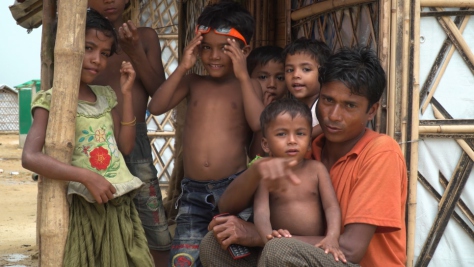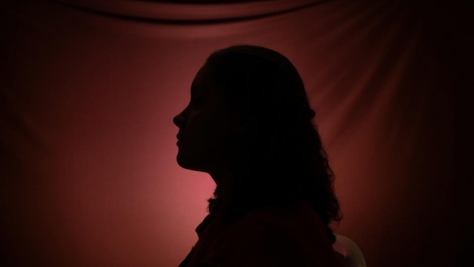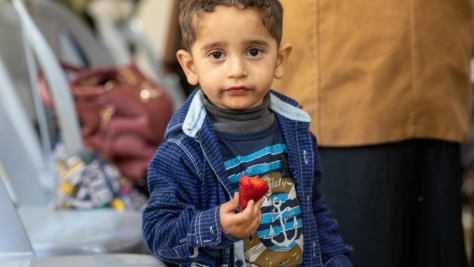Violence in northern Mali forces over 20,000 into exile
This is a summary of what was said by UNHCR spokesperson Adrian Edwards – to whom quoted text may be attributed – at today's press briefing at the Palais des Nations in Geneva.
UNHCR has deployed emergency teams to countries surrounding Mali to help meet the needs of some 20,000 people who have been forced to flee fighting in northern Mali. Most of the displaced are in Niger, Burkina Faso and Mauritania.
Fighting between rebel Tuareg groups and governmental forces in the Azawad region of northern Mali began in mid-January.
In the past three weeks, at least 10,000 people are reported to have crossed to Niger, 9,000 have found refuge in Mauritania and 3,000 in Burkina Faso.
In Niger, most of the new arrivals are from Menaka in Mali. Some have settled very close to the volatile border. Many of the new arrivals are sleeping in the open and have little access to shelter, clean water, health services, and food. People are scattered mainly in villages in Tillaberery, Ouallam, and Filingue districts, in the north of the country. Sinegodar, a village in Tillabery district, is hosting over 5,500 Malians, with one sole water point for the entire refugee and local population.
While most of those who recently fled Mali are Malians, recent arrivals in Niger also include nationals of Niger who had been living in Mali for decades. Many have been crossing the border between the two countries regularly to find grazing land for their cattle.
Local communities along the border, affected by the food crisis themselves in the Sahel, are sharing their resources with the new arrivals. The authorities have also distributed food. Four additional UNHCR staff are already in Niger and more are on their way. We plan to send aid for 10,000 people from our stockpiles in the region.
Our office in Ouagadougou, in Burkina Faso also reported the arrival of some 3,000 Malian Tuaregs following attacks on their homes and businesses in the Malian capital Bamako and in the nearby town of Kati last week. Many of the new arrivals are staying with host families in Ouagadougou and Bobo Dioulasso, 320 kilometres south-west of the capital. Other new arrivals have been reported in the north west of the country, especially near Djibo, in Soum province. An inter-agency mission, including UNHCR, is scheduled to go there by the end of the week to assess the needs of the people.
Meanwhile in Mauritania UNHCR has sent several missions to the village of Fassala, in the region of Hodh el Chargi 3km from the border with Mali, where over 9,000 people have arrived since 25th January. The mainly ethnic Tuareg Malian refugees come from the region of Léré on the other side of the border. They told UNHCR that they fled fighting between Government forces and rebel Tuareg fighters, fearing retaliation by army troops.
The Mauritanian authorities, with the support of UNHCR, are taking care of the new arrivals. Medical services are being offered by the local health clinics and water is being trucked in by the authorities. UNHCR Mauritania distributed 15-day food rations and non food items to cover the urgent needs of 5000 refugees in the refugee site of Fassala. Key needs identified are food, shelter and other basic items. UNHCR will strengthen its presence in Mauritania by fielding an emergency support team.
Fighting between the Tuareg liberation movement MNLA (Mouvement National de Liberation de l'Azawad) and governmental forces resumed on 17 January in Mali, breaking a 2009 agreement that had officially ended the Tuareg rebellion.
For further information on this topic, please contact:
- In Dakar: Helene Caux on mobile +221 77 333 12 91
- In Geneva: Fatoumata Lejeune-Kaba on mobile +41 79 249 3483
- In Geneva: Sybella Wilkes on mobile +41 79 557 9138
Related news and stories
Violence and threats by armed groups continue to displace refugees and civilians in Mali
Escalating violence leaves hundreds dead and hundreds of thousands on the move in eastern DRC
UNHCR urges greater support as violence continues unabated in Burkina Faso
Displaced people from climate frontlines raise their voices at COP27
UN warns of worsening conflict and displacement in Sahel without immediate climate action
UNHCR calls on States to refrain from forced returns of Haitians
-

Refugees start blog to share information on coronavirus
22 Apr 2020 A group of Congolese refugees started to blog about daily life in Angola. But COVID-19 has given them a more critical role – to educate and inform. -

Beware long-term damage to human rights and refugee rights from the coronavirus pandemic: UNHCR
22 Apr 2020 -

Massive floods in DRC's South Kivu impact 80,000 people, kill dozens
21 Apr 2020 -

Rohingya refugees: Preparing for coronavirus at world's largest refugee site
21 Apr 2020 -

COVID-19: UNHCR warns of severe implications for annual monsoon response in Bangladesh
21 Apr 2020 -

'If COVID-19 arrives in the camp, it will be devastating'
21 Apr 2020 Rohingya refugee Saidul Hoque describes how life in the refugee settlements in Cox's Bazar has changed since a lockdown started to halt the spread of the coronavirus. -

Displaced and stateless women and girls at heightened risk of gender-based violence in the coronavirus pandemic
20 Apr 2020 -

As COVID-19 pandemic continues, forcibly displaced children need more support than ever
20 Apr 2020 Joint statement by Henrietta Fore, UNICEF Executive Director, and Filippo Grandi, UN High Commissioner for Refugees -

Cate Blanchett's 'Films of Hope' to watch on coronavirus lockdown
17 Apr 2020 The actor, director and UNHCR Goodwill Ambassador recommends six movies for homebound film-lovers during COVID-19 crisis.
